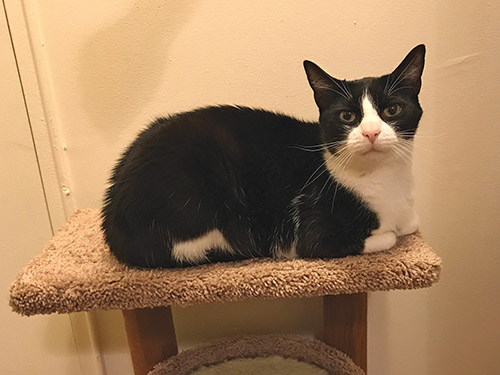
Consider this column a case study. All names have been changed to protect the innocent. Lessons learned by me—priceless. Let’s begin with two statements: 1. No one lives forever. 2. Tomorrow is promised to no one.
In March 2017, I received a call from a social worker asking me if I would be interested in taking on a case. She reviewed the details of what needed to be accomplished and a brief history of the client’s life, challenges, family issues and current goals.
I had nothing to lose except a couple of hours of my time to conduct a home assessment to determine if I could help him. After many attempts to find his home on my vehicle’s GPS and several frustrated phone calls to the social worker to better understand where exactly I was going, I arrived 30 minutes late. As I was walking up the steps to his apartment, he came downstairs to greet me and was quite upset over the events of his day. But he was happy to meet me, and I gave him a hug.
As we walked to his apartment, he told me about his life, his family, his career in the armed forces and his current situation. He also spoke about his cat, Raphael, with extreme tenderness and love. We entered the apartment and I knew immediately that we were dealing with extreme clutter, a shopping addiction and a lot of sadness.
After the initial assessment, we both agreed that we could work together, and we set up weekly appointments to begin de-cluttering a very “dense” apartment. In my world we call it “Extreme Clutter.” As I began to get to know him over time, I realized that he had no one in his life except his beloved cat and a few acquaintances in the complex where he lived. Our relationship developed to one of trust, where he confided in me about his life, disappointments and regrets. I suggested that he focus on the here/now and begin planning for the next stages in his life.
It was obvious to me that he could not live in the current circumstances long term. Over time he agreed to bring other professionals into his inner circle. By the following year, he had updated his estate planning, sold off most of his excess possessions and moved into an assisted-living community. There were moments of joy, pride and anger on his part. All normal feelings, but they had to be dealt with. Change is never easy, and when you are alone and unhappy, the known clutter is better than the unknown opportunity.
On Friday morning, December 7, 2018, I received a voicemail from a member of the client’s team, who informed me that our mutual client had passed away in his sleep the night before. It was unexpected. I immediately jumped into organizing mode…what was going to happen to Raphael? With all the effort that went into the client’s long-term plan, there was nothing in writing on care for his cat. I had always promised him that I would make sure to find the cat a home.
All weekend I was networking with friends, colleagues and clients who are animal lovers….do you want to adopt a great cat? Do you know anyone who wants to adopt a great cat? E-mails, texts, phone calls—I was on a mission.
On Sunday morning one of our friends called to say that she found a loving home for Raphael. He was introduced to his new family later that day and went home with them on Monday, allowing the family an evening to prepare his room.
Remember how this article opened…1. No one lives forever, and 2. Tomorrow is promised to no one. Please include your pets in your estate planning. They provide us with love, devotion, joy and a feeling of purpose. We owe it to them to ensure that they are cared for when we are no longer around. A hearty shout-out to all those involved in making sure that Raphael found a new home—thank you from the bottom of my heart.
Happy Organizing!
By Eileen Bergman
Eileen Bergman is a professional organizer and a proud member of the National Association of Productivity and Organizing Professionals (NAPO) and the Institute for Challenging Disorganization (ICD). Eileen is listed in the resource directory for the Hoarding Disorder Resource and Training Group. She may be reached at 973-303-3236 or [email protected].













